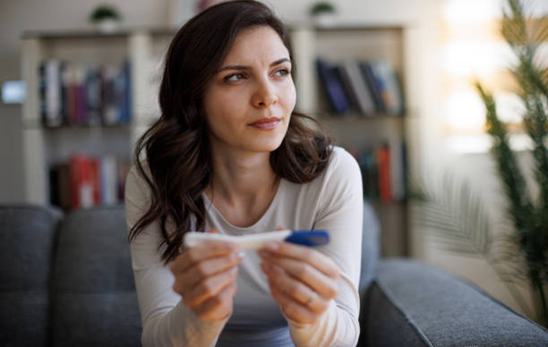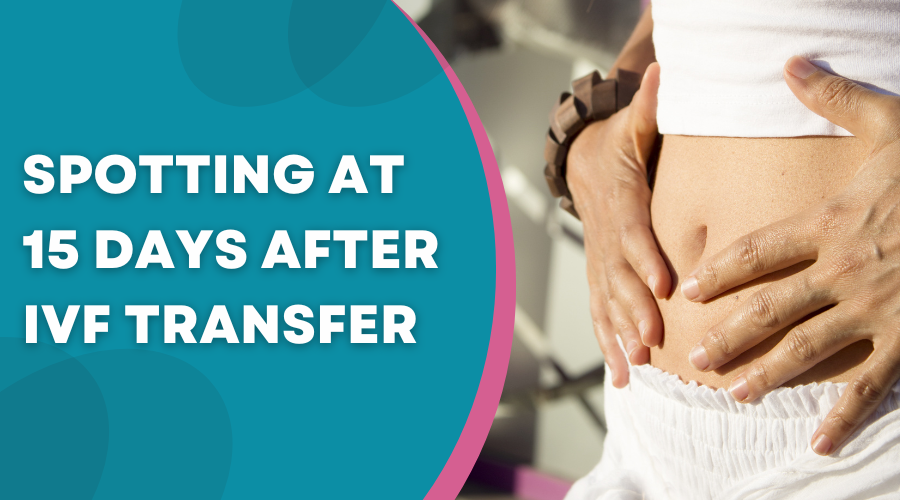Spotting after IVF transfer 15 days later can be distressing for many individuals undergoing fertility treatments. Patients often worry about the success of the embryo transfer and the health of the pregnancy.
Dr. Nisarg Patel, an esteemed IVF doctor in Ahmedabad, emphasizes that spotting can be concerning, but it doesn’t always mean a problem. He advises patients to stay calm and seek guidance from their specialists to understand the cause and determine necessary actions.
At Nisha IVF Centre in Ahmedabad, Dr. Patel and his team are dedicated to providing comprehensive care and support throughout your IVF journey. With extensive expertise in fertility treatments, he offers personalized care tailored to each patient’s needs.
Is Spotting 15 Days After Embryo Transfer Normal? Should I Worry?

Bleeding 15 days after embryo transfer can be a common occurrence, but understanding its significance is crucial. This light bleeding might be due to implantation, as the embryo attaches to the uterine lining. It can also be due to hormonal fluctuations associated with pregnancy or the IVF process itself.
While spotting can be normal, it’s crucial to monitor the situation closely. If the spotting is heavy or accompanied by severe pain, it is best to seek expert advice. Regular check-ups and open communication with your IVF specialist can help ensure a smooth progression of your pregnancy.
What Does It Mean? Is It a Positive or Negative Sign?

Spotting after IVF transfer can be interpreted in several ways. On the one hand, it might indicate a positive sign, especially if the spotting is light and occurs around the time of implantation. On the other hand, it could signal a potential issue if the bleeding is heavier or persists.
However, spotting does not always guarantee a successful pregnancy. It’s crucial to distinguish between normal spotting and symptoms that might indicate complications. Monitoring the colour, amount, and duration of the spotting can provide valuable information about your pregnancy’s status.
Causes of Spotting 15 Days After Embryo Transfer
Bleeding 15 days after embryo transfer can have several causes, including:
- Implantation Bleeding: Light spotting due to the embryo embedding in the uterine lining.
- Hormonal Changes: Fluctuations in hormone levels can cause light bleeding.
- Cervical Irritation: Sometimes, procedures related to IVF can irritate the cervix.
- Medication Effects: Certain medications used during IVF may cause spotting.
- Uterine Lining Changes: The process of preparing the uterus for implantation can sometimes lead to spotting.
- Infection: Mild infections from IVF procedures might cause bleeding.
- Miscarriage Risk: Though less common, spotting can occasionally be a sign of miscarriage.
- Other Factors: Stress or underlying health issues might also contribute.
What Should I Do If I Notice Spotting 15 Days After Embryo Transfer?

If you experience spotting after IVF transfer 15 days later, consider these steps:
- Monitor the Spotting: Track the amount, colour, and duration of the spotting.
- Assess Other Symptoms: Note any additional symptoms, such as cramping or severe pain.
- Contact Your Clinic: Inform your fertility specialist about the spotting for guidance.
- Follow Medical Advice: Follow your specialist’s instructions, including any recommended tests or treatments.
- Stay Informed: Spotting can be normal, but staying informed and proactive is essential.
- Avoid Stress: Stay calm, as stress can impact your health and pregnancy.
- Schedule a Check-Up: Regular check-ups can ensure that everything is progressing as expected.
Other Symptoms After 15 Days of Embryo Transfer

Besides spotting, other symptoms you might experience include:
- Nausea or Vomiting: Common in early pregnancy due to hormonal changes.
- Breast Tenderness: Hormonal changes can cause increased sensitivity or swelling.
- Fatigue: Increased tiredness is typical after embryo transfer.
- Mood Swings: Hormonal fluctuations can affect your emotions.
- Cramping: Mild cramping can occur as the uterus adjusts when the embryo implants.
Conclusion
Spotting after IVF transfer 15 days can be concerning, but it usually does not indicate a complication. Understanding the potential causes and knowing when to seek medical advice is crucial. Patients can confidently navigate their IVF journey by staying informed and consulting with professionals.
Dr. Nisarg Patel, an experienced IVF specialist in Ahmedabad, provides comprehensive care to address these concerns. Spotting can often be a normal part of the process, but always seek expert guidance to ensure your health and peace of mind.


